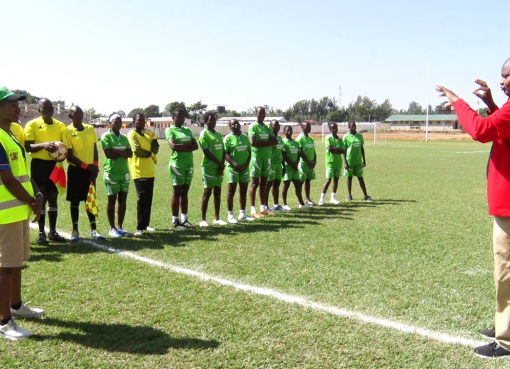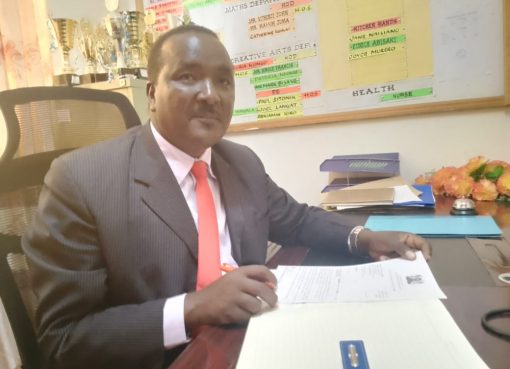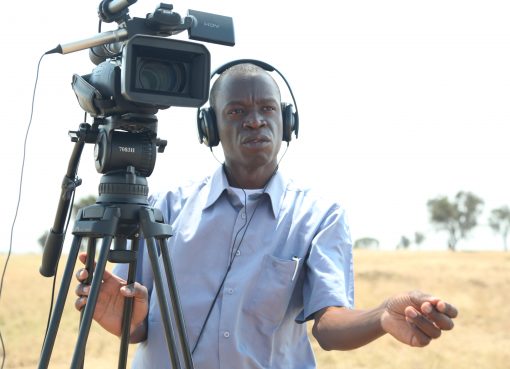Kenya Fatwa Council (KENFAT) held a homecoming ceremony for the newly appointed Chief Kadhi of Kenya, Abdulhalim Hussein, in Mombasa.
The meeting was convened by KENFAT Chairman Mufti Sayyid Ahmad Ahmad Badawy. Muslim leaders from Tanzania, Zanzibar, Ethiopia, Somalia, and Uganda attended it.
The Judicial Service Commission (JSC) appointed Abdulhalim in July following a competitive recruitment process. Kadhis’ Court derives its mandate from Article 170 of the Constitution.
Its jurisdiction is limited to the determination of Muslim law questions relating to personal status, marriage, divorce, or inheritance in proceedings in which all the parties profess the Muslim religion and submit to the jurisdiction of the Kadhis’ courts.
The Chief Kadhi promised to work with Muslim scholars to unite Muslims and iron out differences around the contentious issue of moon sightings.
He thanked the organisers, judicial staff, and his teachers for their unwavering support and for sharpening his life philosophy.
“My philosophy is to improve quality work and timely delivery of verdicts, especially to the less fortunate in society,” he said.
The Chief Kadhi will head 43 courts across the country, assisted by 50 Kadhis under him.
“This is an old institution. Whenever I visited, the rallying call was for us to enhance the visibility of the office and not be Kadhi of Mombasa only,” said the Chief Kadhi.
East Africa Legislative Assembly (EALA) MP Suleiman Shahbal urged Muslim leaders to address various social and economic problems bedevilling the community.
“We have numerous problems as a community; we have social issues that we are not addressing; 45 per cent of Kenyan families are being led by single mothers,” said Shahbal.
“The problem is that consultation with women is missing; our girls are married in lavish weddings, and after a month they have divorced,” he added, urging youths to embrace pre-wedding counselling.
Shahbal decried that Muslims still lag in education performance in the entire Coast region, yet the problem is not being addressed.
“We should have a common stand in religious matters; it’s high time we unite, and we should not focus on issues that divide us. We are the laughing stock of the country; for instance, we Muslims can’t decide the date for holiday(s),” he said.
The MP challenged leaders to come up with leadership programmes to mentor youths to take up leadership positions.
“The exuberance that the youths bring is missing. It’s time we bring our youths into decision-making,” he said.
Nafisa Hitamy, a Muslim women’s teacher, urged Chief Kadhi to set up a women’s desk in his office to handle women’s matters conclusively.
“If we have inquiries, we should pass them through women; they should record the complaint and forward it to the Chief Kadhi,” said Nafisa.
Senator Mohamed Faki described Chief Kadhi as a meticulous and fine judge because in his judgements there are elements of intellectualism and extensive research.
“As leaders, we will work closely for his leadership to be impactful for the Muslim community,” said Faki.
Governor Abdulswamad Nassir urged Kenyans to give Chief Kadhi time to deliver on his mandate.
To assist drug addicts, the governor said his administration will construct two rehabilitation centres for men and women.
Chief Kadhi emeritus Ahmed Mohdhar advised the incumbent Kadhi to not favour anyone in the delivery of justice.
“You shouldn’t be distracted. Be satisfied with your salary. Don’t follow personal interests, but administer justice according to the law,” said Ahmed.
By Sadik Hassan





